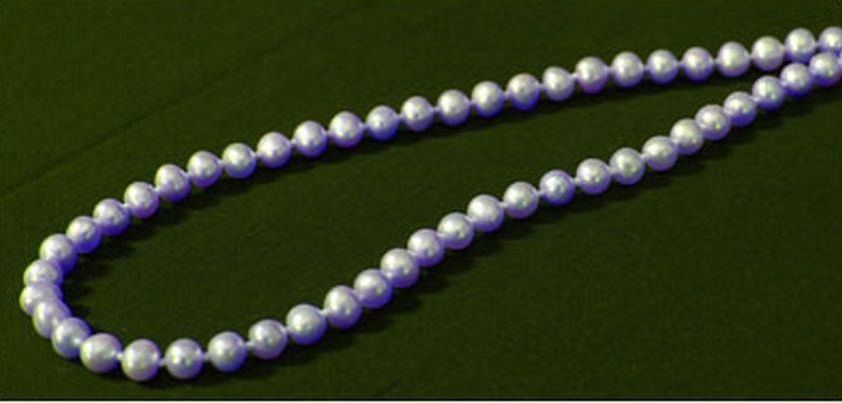 This story by W. Somerset Maugham takes place at sea. A narrator we learn almost nothing about is forced to share a cabin with a man he takes an instant disliking to because of little more than his name. The other man plays an organizational role in many aspects of ship life to the point of being everywhere and always. The narrator finds him hearty, jovial, loquacious and argumentative. He calls him the best hated man in the ship. It is not until the man ‘loses’ a bet about pearls that the narrator develops a grudging respect for him.
This story by W. Somerset Maugham takes place at sea. A narrator we learn almost nothing about is forced to share a cabin with a man he takes an instant disliking to because of little more than his name. The other man plays an organizational role in many aspects of ship life to the point of being everywhere and always. The narrator finds him hearty, jovial, loquacious and argumentative. He calls him the best hated man in the ship. It is not until the man ‘loses’ a bet about pearls that the narrator develops a grudging respect for him.
Mr Know-All Text / PDF (2,450 words)
General Comments / The Unanswered Question
Themes include culture, manners, outward appearances, values and, most importantly of all, prejudice. Prejudice exists because it is human nature to stereotype people we meet based on race or how they look before getting to know them. The moral of the story can be summed up by the English proverb: “You should not judge a book by its cover”.
The climax of the story develops from an argument over pearls, and Kelada’s claim that the newly developed cultured pearl industry would not reduce the value of those produced naturally. In this he is correct as nowadays natural pearls are very rare and very valuable. However, the cultured pearl industry has grown to be much larger than the natural pearl industry, and over 99% of the pearls sold around the world today are of the cultured variety.
At the end of the story we are left with an unanswered question. An envelope containing $100 was pushed under Mr Kelada’s cabin door. It was addressed in block letters, so that no one would know who sent it. Who left the envelope?
If it was left by Mrs Ramsay, the fact that there is no thank you note inside indicates that she is a shallow character with little concern for others. She does not understand or appreciate the sacrifice that Mr Kelada made for her, and regards the $100 simply as a loan to be repaid.
Alternatively, the envelope could have been left by Mr Ramsay after learning the truth about the necklace from his wife when he went back to their cabin the previous evening. In those days, $100 would have been more than Ramsay’s monthly salary. Giving back the money, which he should not have won, would indicate an element of honesty on his part. However, a truly honest man (if he had the money) would have included $200 in the envelope as Mr Kelada should have won the bet.
Video Version
This is a segment from the 1950 movie ‘Trio’, which featured three of Maugham’s short stories. The introduction to the story is by Maugham himself. It is interesting to note that Maugham was also involved in writing the screenplay for the film. Watch and enjoy!